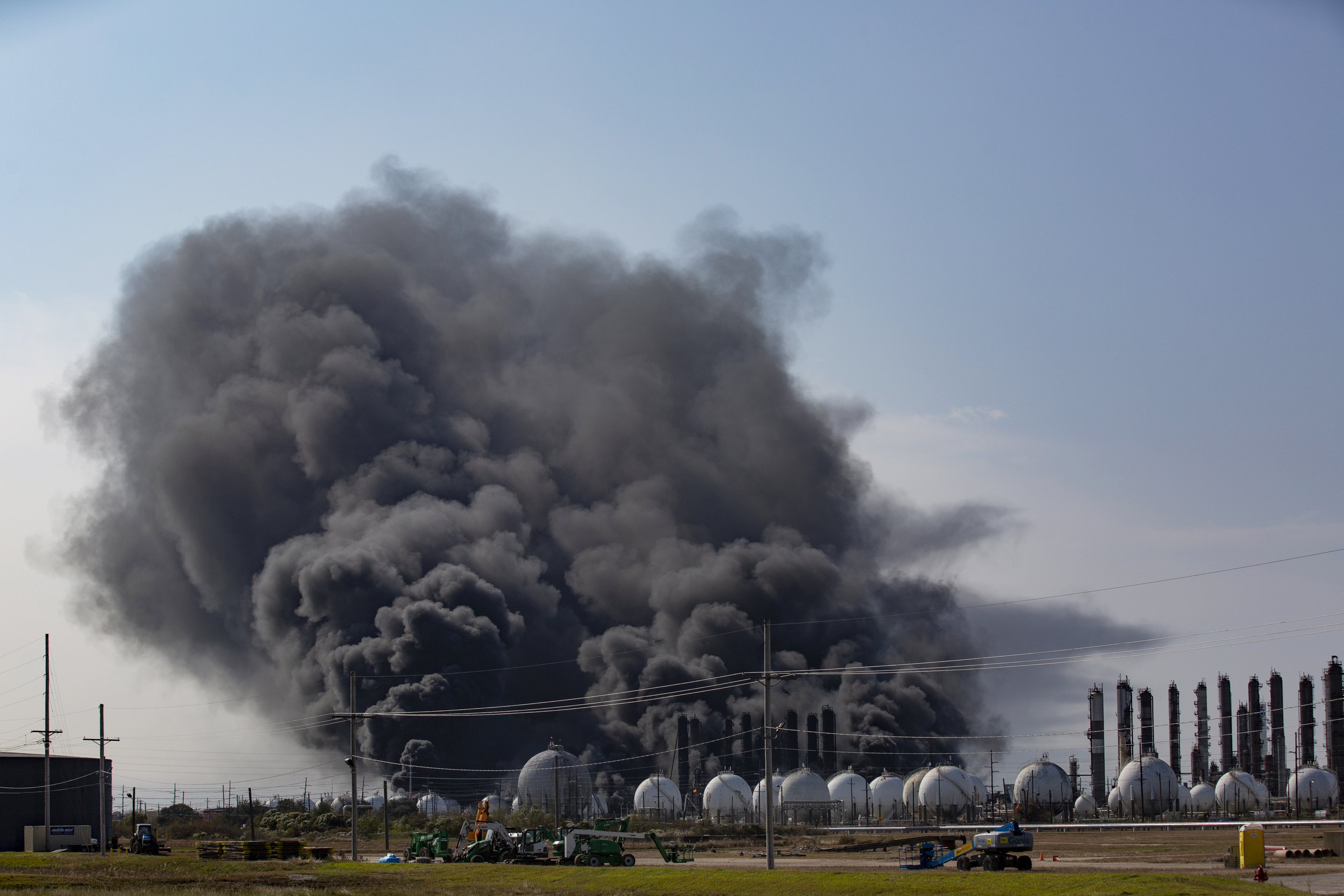Videos Show Giant Texas Chemical Plant Explosion That Forced 60,000 People to Evacuate

Credit to Author: Tim Hume| Date: Fri, 29 Nov 2019 13:13:35 +0000
Some 60,000 Texans have been driven from their homes on Thanksgiving by a series of explosions at a petrochemical plant Wednesday that has created a massive ongoing fire.
Three workers were injured when a processing unit at the Texas Petroleum Chemical Group (TPC Group) plant in Port Neches in southeast Texas exploded at about 1 a.m. Wednesday, igniting a fire that has triggered a series of secondary explosions.
A huge subsequent blast at about 2 p.m. Wednesday launched a distillation tower into the air, prompting authorities to order Jefferson County residents within a four-mile radius of the plant — in Port Neches and Groves, and parts of nearby Nederland and Port Arthur — to evacuate.
The three workers injured in the fire have all been treated and released from the hospital, said Troy Monk, TPC Group’s director of health safety and security.
Jefferson County chief executive Jeff Branick said authorities are concerned the fire could ignite other chemical tanks at the 218-acre site. Fire crews were still on site Thursday working to keep surrounding storage tanks cool, so that the fire does not spread while they let it burn itself out.
But officials said there was no way to tell how long it would continue to burn.
Officials said the explosions jolted people awake in their beds more than 30 miles away, and caused widespread damage in surrounding areas. Security footage from the Avenue Coffee Café, a couple of miles from the plant, showed a huge flash of light from the initial explosion, before the force of the blast blew out its windows and blew open it doors about five seconds later.
TPC Group said in a statement it was too early to speculate as to the cause of the explosion, but that it happened in a processing unit at a tank with finished butadiene.
The colorless gas, used to produce synthetic rubber used for tires and automobile hoses, is considered hazardous to health. The Texas Commission on Environmental Quality, the local pollution regulator, said from a nearby monitoring station showed the substance was “well below concentrations of health concern or odorous levels,” but noted the fire was releasing a plume of smoke that could that could lead to eye, nose and throat irritation, shortness of breath, and headaches.
Officials have advised residents downwind of the smoke plume to remain inside and not to touch floating debris from the blaze.
The National Shelter System reported that 84 people had spent Wednesday night in a shelter set up in the Ford Park arena in Beaumont, TX, about a 20 minute drive from the site of the fire, with others assumed to be staying with family, friends or in motels.
The commission’s executive director, Toby Baker, told Reuters there had been an “unacceptable trend of significant incidents” at chemical plants in Texas, with three previous major incidents since March.
In April, a fire at a chemical plant northeast of Houston killed one worker and injured another, and in July, 37 people were injured in a chemical plant fire in Baytown.
The Port Neches explosions came as the Trump administration rolled back a raft of chemical safety regulations Thursday that had been created in response to a massive ammonium nitrate explosion at a storage facility in West, Texas in 2013.
The new rules meant companies would not have to submit to third-party audits after accidents, or grant the public access to information on which chemicals were held in the facilities. According to the Houston Chronicle, the Environmental Protection Agency justified the changes by citing potential security risks in publicly revealing stores of chemicals held at sites, and reduced compliance costs and regulatory hurdles for companies.
Cover: Smoke rises from an explosion at the TPC Group Port Neches Operations plant on Wednesday, Nov. 27, 2019, in Port Neches, Texas. (Marie D. De Jesus/Houston Chronicle via AP)
This article originally appeared on VICE US.